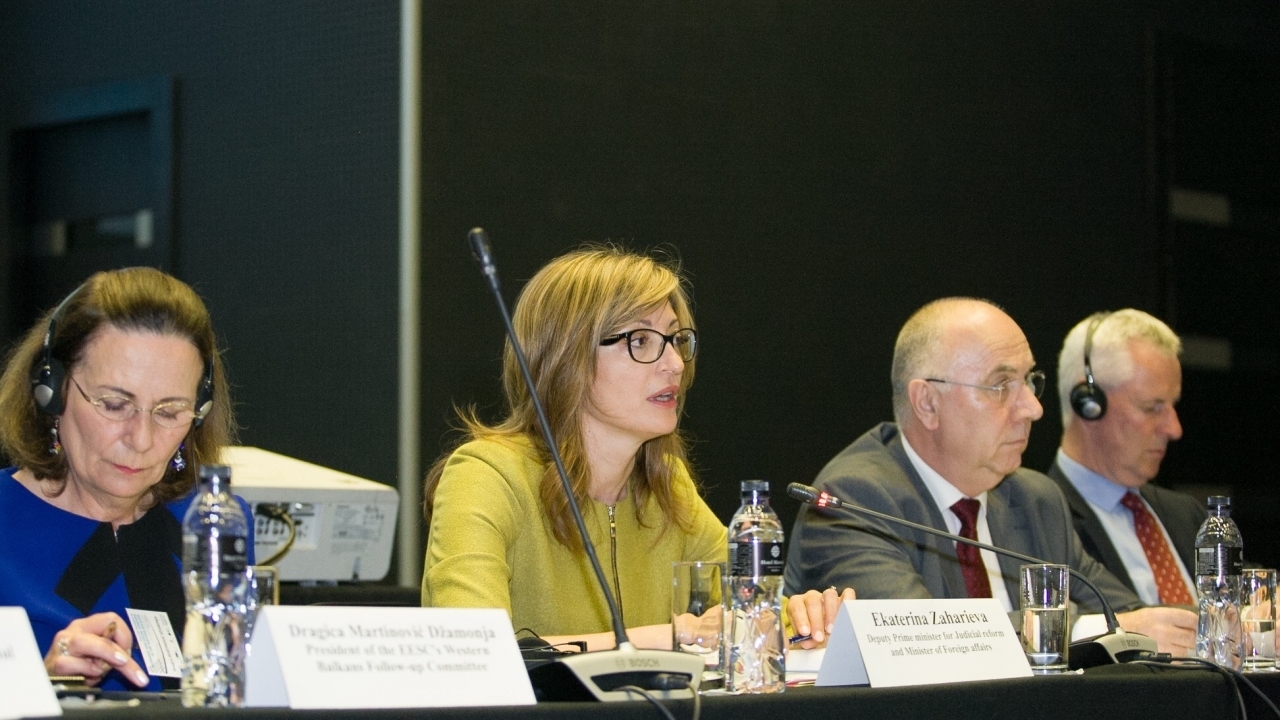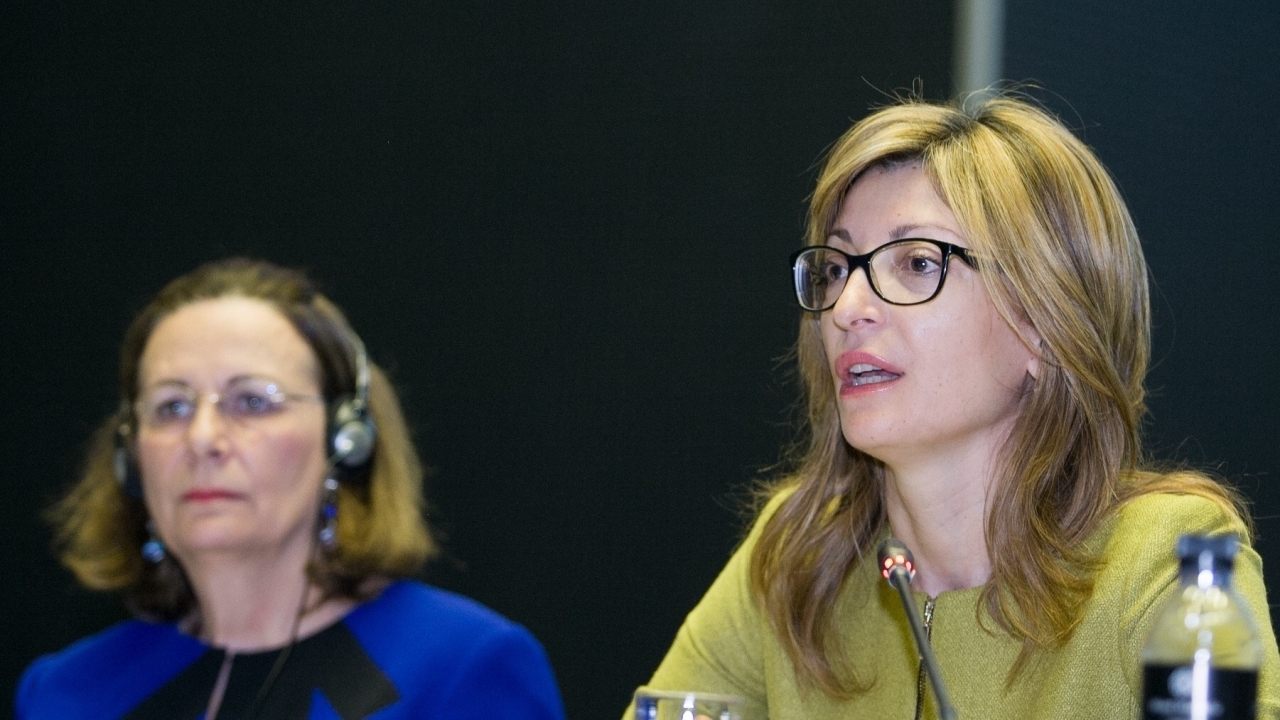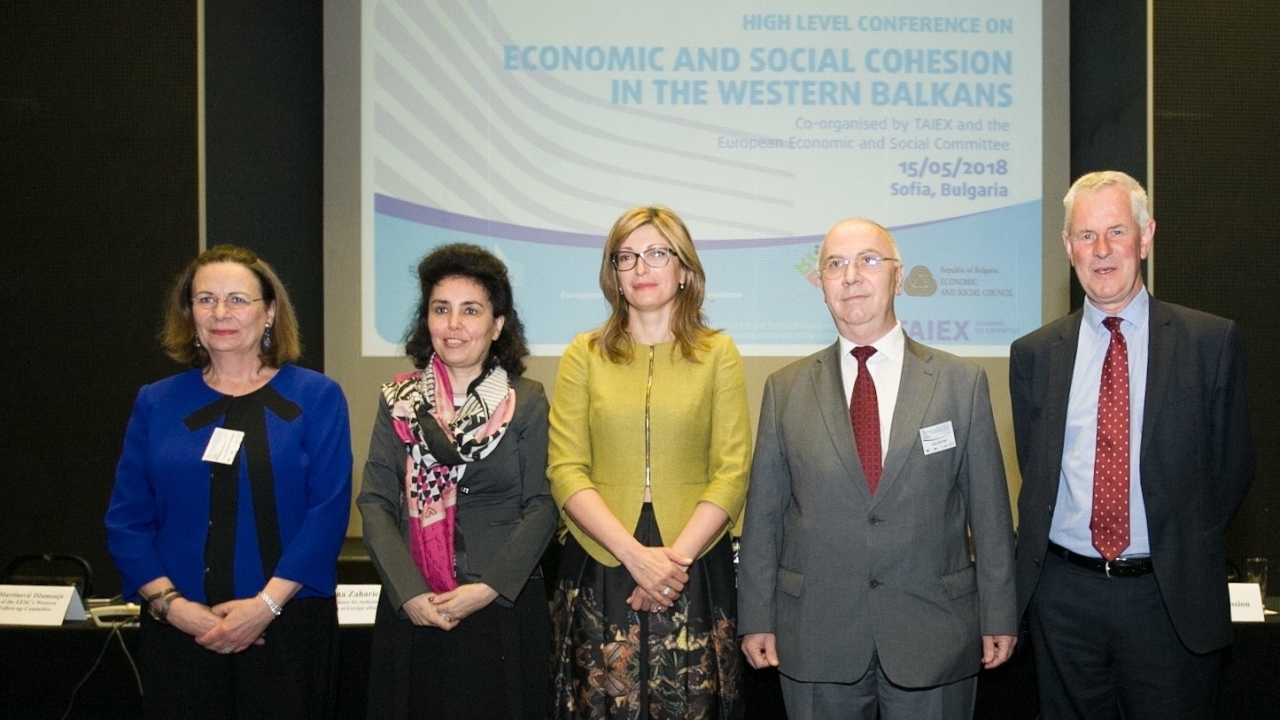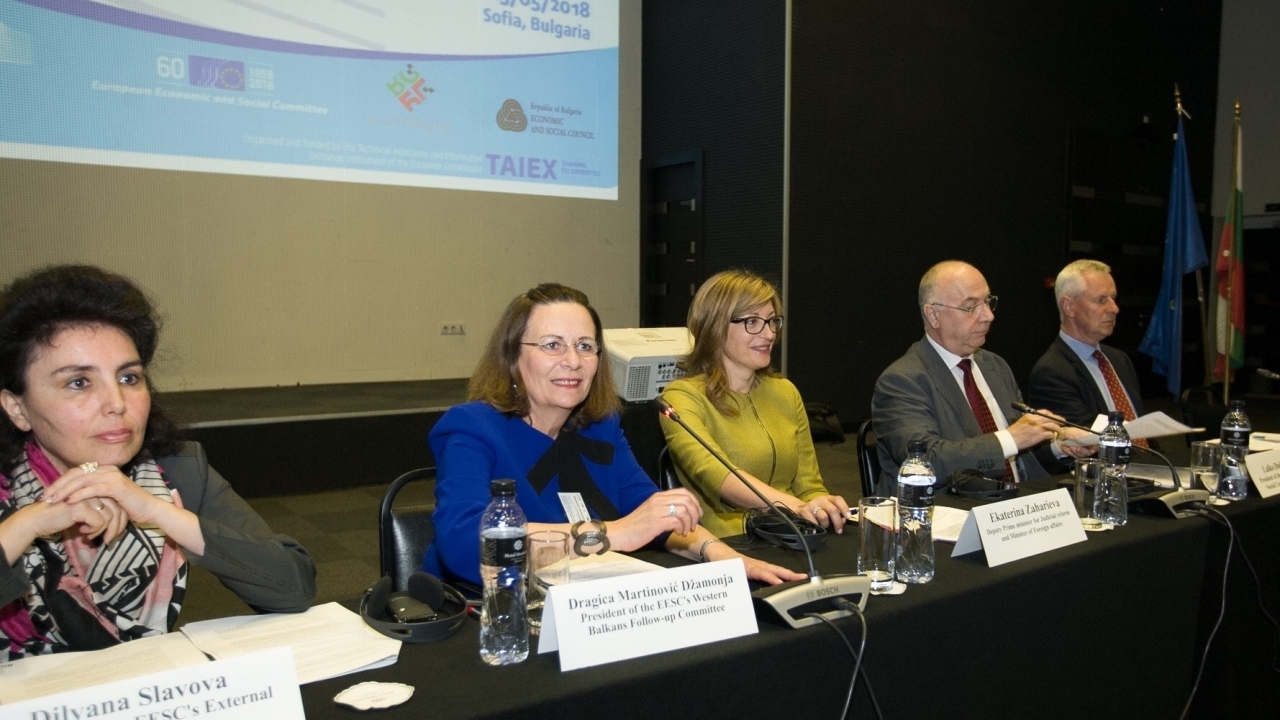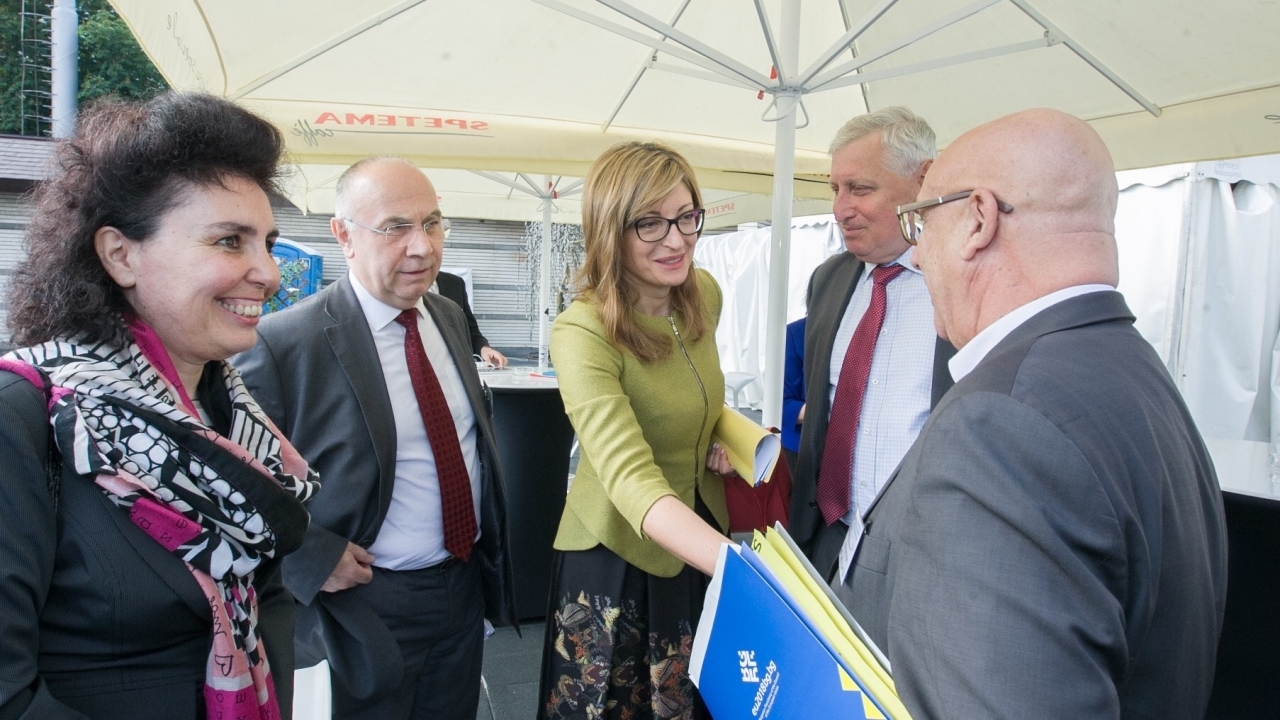Ekaterina Zaharieva opens the Conference on Economic and Social Cohesion in the Western Balkans
15 May 2018 News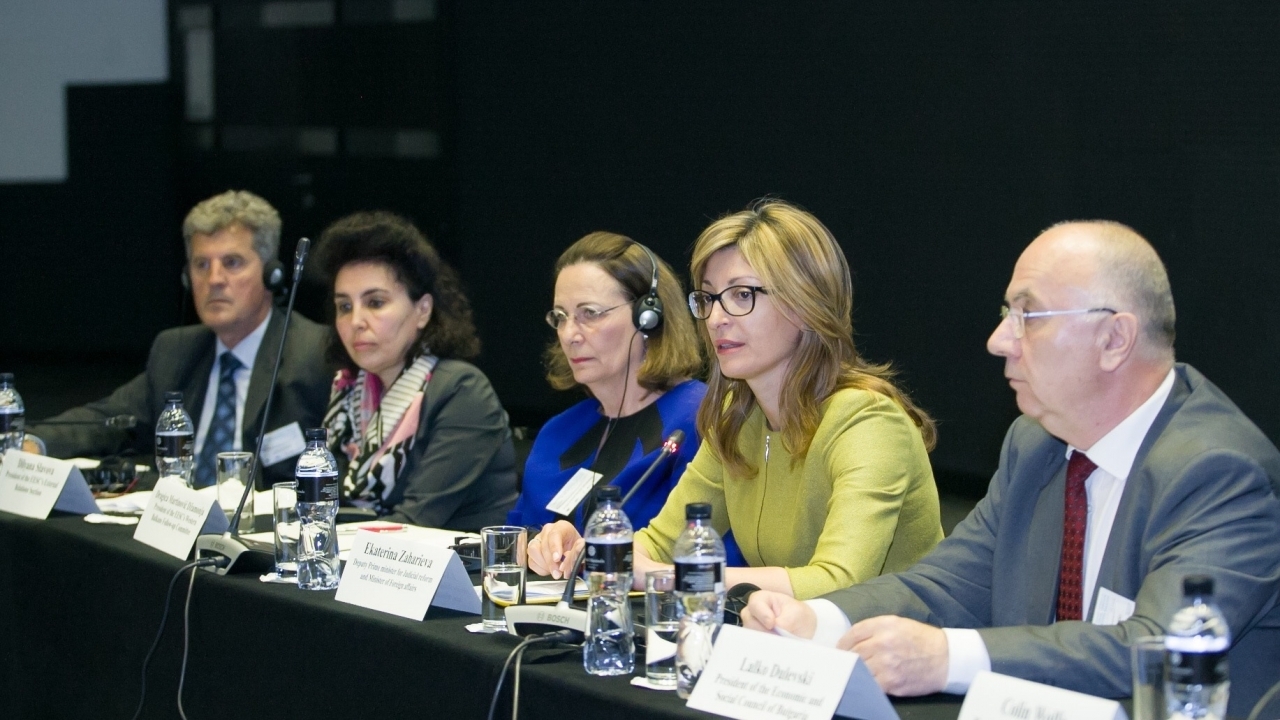
“The European perspective of the Western Balkans is not a priority of the Bulgarian Presidency only, but is our long-term foreign commitment. I believe that we will achieve success if we make this process irreversible,” Ekaterina Zaharieva, Deputy Prime Minister of Bulgaria said at the opening of the International Conference on Economic and Social Cohesion in the Western Balkans, held by the European Economic and Social Committee (EESC) and under the Technical Assistance and Information Exchange Programme of the European Commission.
Representatives of European and Bulgarian bodies took part in the discussion as well as civil society organisations from the Western Balkan countries, diplomats, experts, and others.
In her speech at the forum, Ekaterina Zaharieva stressed that during the Bulgarian Presidency it is becoming a firmly established practice that representatives of the Western Balkan countries, too, attend various initiatives for European meetings and formats in different fields. Bulgaria’s aim, she said, was to turn this into a common process.
“It is vital that the European countries and institutions realise that we should provide our neighbours with close friendship and support. This is not only due to considerations of Europe’s safety and stability, but also because this is the choice of their societies, citizens and businesses to be part of the European Union,” Zaharieva said.
The Bulgarian Deputy Minister highlighted the importance of the economic and social cohesion of the countries in the neighbouring region as contributing to the achievement of lasting safety and stability not only in the Western Balkans, but also across Europe. She welcomed the work of the European Economic and Social Committee in the area of social economy, which is emerging to be a key concept in the future development of the European economies and societies.
“The European citizens want three things – safety, solidarity, and a social Europe. They demand a Europe that goes back to its intrinsic values since the establishment of the EU,” Minister Zaharieva noted. In her words, for Europe to be able to address the challenges it faces in this respect, targeted efforts of both governments and social partners are necessary to build adequate conditions for development.
Zaharieva added that despite the diverging views on the proposal for the next EU budget, discussed at the General Affairs Council meeting in Brussels, there are some positive ideas. Among them, she highlighted the increased funds in the area of security, the private sector, innovations, and education.
“The budget is not an accounting effort – it will define the future of Europe so it is important that we listen to the civil society and hear its views on the future. I want to see strong cohesion in the next EU budget because this will convince me that the open-door policy is what all Member States want,” Ekaterina Zaharieva stressed.
In her comment, the Deputy Prime Minister invited the societies of the Western Balkan countries to support the governments in the region on the path of reforms and the European perspective. “Unless we see the onset of improved economic and social conditions, unless the reforms in the judiciary continue, the youth drain in the region will not cease despite the EU perspective,” Zaharieva said.
She called on the political elite in the Western Balkan countries to stay firmly committed to the reform process which is to benefit their citizens. The people from the region want to see and experience specific effects, and it is exactly initiatives to benefit society that will be included in the Sofia Summit Declaration on May 17, the Foreign Minister commented to the media after the conference. “All leaders will be here, which is a great token of respect to the Bulgarian Prime Minister and is a rare occasion. I am sure that they will make decisions which the people from the Western Balkans will perceive and experience,” Zaharieva said.

